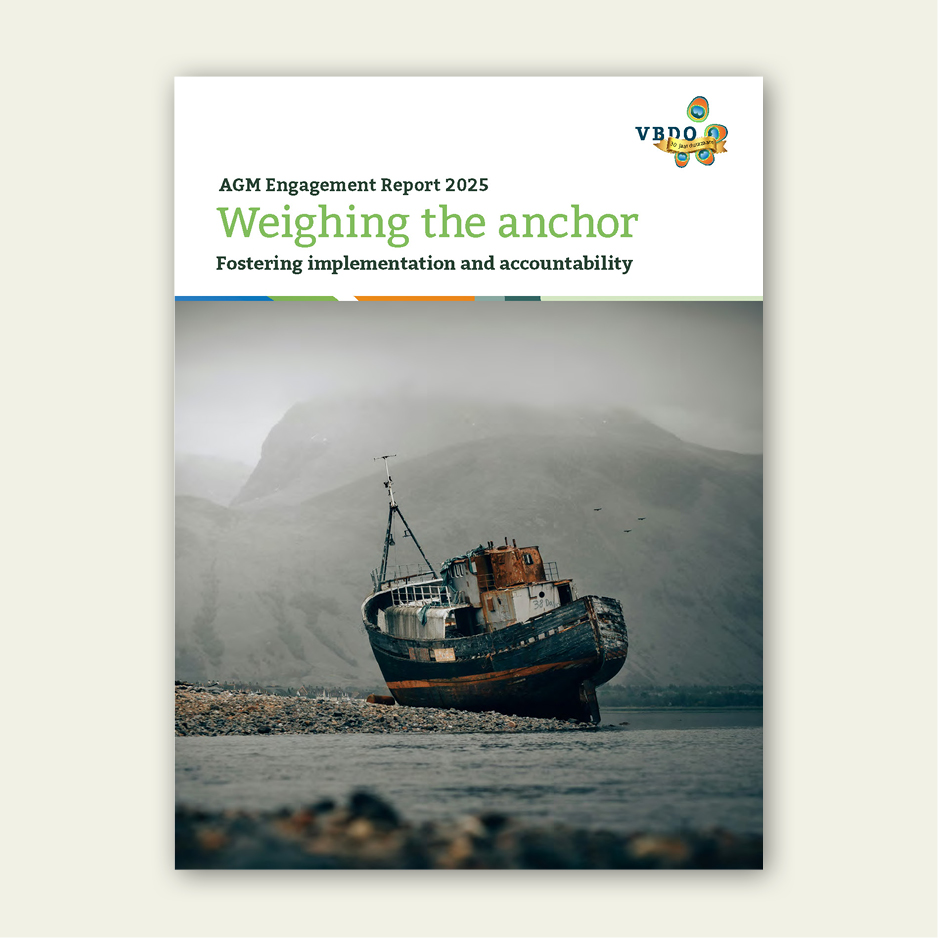As investor and regulatory pressure mount, a new report reveals that while companies increasingly recognise their role in sustainable development, true impact will hinge on embedding these ambitions into formal strategies and deeper dialogue with value chain stakeholders.
Chain-driven activities
Utrecht, Netherlands – The Dutch Association of Investors for Sustainable Development (VBDO) released its annual AGM Engagement Report 2025, marking 30 years of investor-driven sustainability engagement. The report spotlights a rising corporate acknowledgement of sustainability responsibilities but calls for a sharper focus on translating intentions into concrete, value chain-wide policies and practices.
The 2025 engagement season saw VBDO pose 143 targeted sustainability questions across 29 AGMs, on three different sustainability themes: engagement on biodiversity, living wage and the CSRD, prompting commitments from several leading Dutch-listed companies. The findings underscore one resounding theme: formalisation and stakeholder engagement must now become the backbone of corporate sustainability.
“Sustainability can no longer be a standalone program or a set of loose initiatives,” said Angélique Laskewitz, Executive Director of VBDO. “To drive meaningful change, companies must integrate their ambitions into structured policies and take a collaborative approach, particularly by engaging those most affected in their value chains — such as local communities, workers, and suppliers.”
Biodiversity, living wage & CSRD
Sustainability activities per theme are researched and engaged on over a period of three consecutive years by VBDO. The results are reported annually, with some remarkable findings.
According to the report, only 33% of non-financial companies have implemented policies addressing living wages across their supply chains, despite over 60% acknowledging related risks.
Regarding biodiversity, 54% of companies engaged with stakeholders such as local communities, but only 43% defined biodiversity-sensitive areas beyond direct operations.
With the CSRD coming into effect, 86% of companies reported having a stakeholder engagement policy, yet only one-third linked these efforts to value chain due diligence.
Risk of lagging
These figures show progress but highlight a pressing gap between corporate vision and on-the-ground implementation. Companies that do not proactively formalise their sustainability approaches risk falling behind in regulation, investor expectations, and reputational credibility.
The report also warns against complacency amid delayed or weakened EU sustainability regulations. “The Omnibus proposal and hesitations around the Corporate Sustainability Due Diligence Directive risk sending mixed signals,” Laskewitz added. “Companies should view frameworks like CSRD and CSDDD as a catalyst, not a compliance box.”

